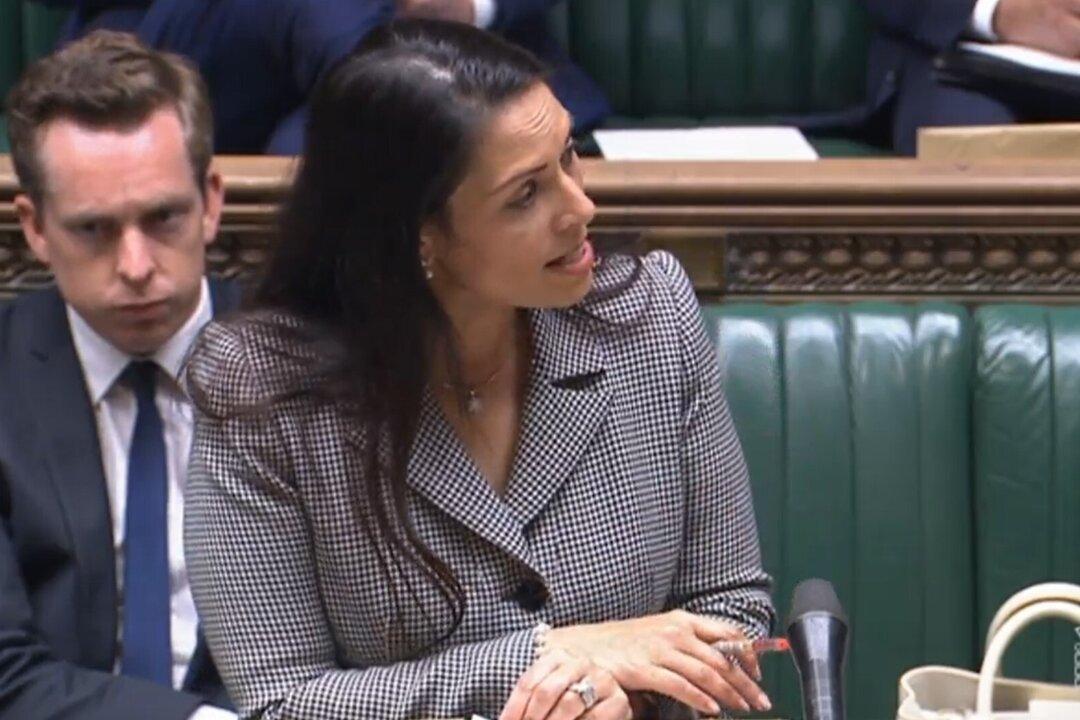The European court was politically motivated in its decision to effectively ground Britain’s first flight carrying asylum seekers to Rwanda, according to the UK Home Secretary.
Priti Patel said the European Court of Human Rights (ECHR) decision to grant a temporary injunction to ground the flight was described as “absolutely scandalous.”





